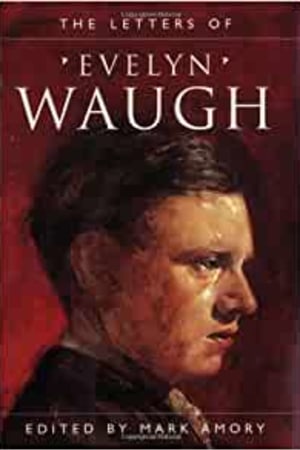Memoirs
- Publisher : Phoenix
- Published : 01 Jan 1995
- Pages : 672
- ISBN-10 : 1857992458
- ISBN-13 : 9781857992458
- Language : English
The Letters of Evelyn Waugh
Evelyn Waugh was a loving Husband, a wise and affectionate father and the funniest English novelist of the century. This selection of letters does full justice to these splendid attribute's " Phillip Toynbee.
Readers Top Reviews
Michael Collier
A nice insight into the mind of a great writer with Waugh at times playful, at times excoriating, and at times infuriating. Interesting to see how he varies his tone according to the addressee - respectful towards Graham Greene, deliciously bitchy in his gossip with Nancy Mitford and terrifyingly pious in his exchanges with the Betjemans. Mark Amory deserves huge credit as the editing job is magnificent.
Hansen Alexandermr b
Since the renowned British writer Evelyn Waugh did not like to talk on the telephone and he died long before e-mail, personal letters were the medium in which he vented his frustrations, mostly about modernity and the more equitable society that imposed higher taxes on the relatively rich, such as himself, after the Depression and World War II. The early letters are informative, charming, and show his writing progress leading up to "Brideshead Revisited," which he wrote on the public dole as a British officer in World War II and which made him famous. These letters concerning "Brideshead" show that a writer's best critic is usually himself, for Waugh knew it was a special book when he was writing it. He was nevertheless overwhelmed by its success, particularly in the United States. "I am beginning to get letters thanking me for "Brideshead Revisited." It seems to be a success, and I think it should be...I believe it will go on being read for many years." A major theme of these letters is a defense of Christianity, specifically Catholicism, a persecuted religion in England until very recent times. Waugh complains that "Brideshead" suffered "the general criticism that it is religious propaganda. That shows how opinion has changed in 80 years. No one now thinks a book which totally excludes religion is atheistic propaganda. 80 years ago every novel included religion as part of the normal life of the people." Much of Waugh's derision for socialism, high taxes, and the paintings of Picasso can be explained, as suggested before, by Waugh's membership in the country's elite. Winston Churchill's son Randolph was a close friend and Randolph's cousin Nancy Mitford, a popular writer of that time, is a recipient of many of these letters. A typical letter to Mitford, penned in November 1946, can not resist the political digs: "I expect you have been electioneering for the communists and transhipping Jewish terrorists to Palestine." Waugh's hatred for Picasso seemed to know no bounds. "The large number of otherwise cultured and intelligent people who fell victims to Senor Picasso are not posers." Or as he condemns all of modern art with the broad brush: "Perhaps in the Providence of God the unqualified hideosity of Modern Art has been sent us to courage us for just this aberration." Like many conservatives, Waugh heaps scorn on the field of psychology. "But people are going mad and talking balls to psychiatrists not because of accidents to the chamber-pot in the nursery, but because there is no logical structure to their beliefs." At least Waugh is at his most descriptive and entertaining when writing about Randolph Churchill, who comes off as a modern Falstaff in Waugh's pen. "Randolph came for two days and behaved abominably. I thought he could never shock me any more but he did. Britishly drunk all the time, so...


